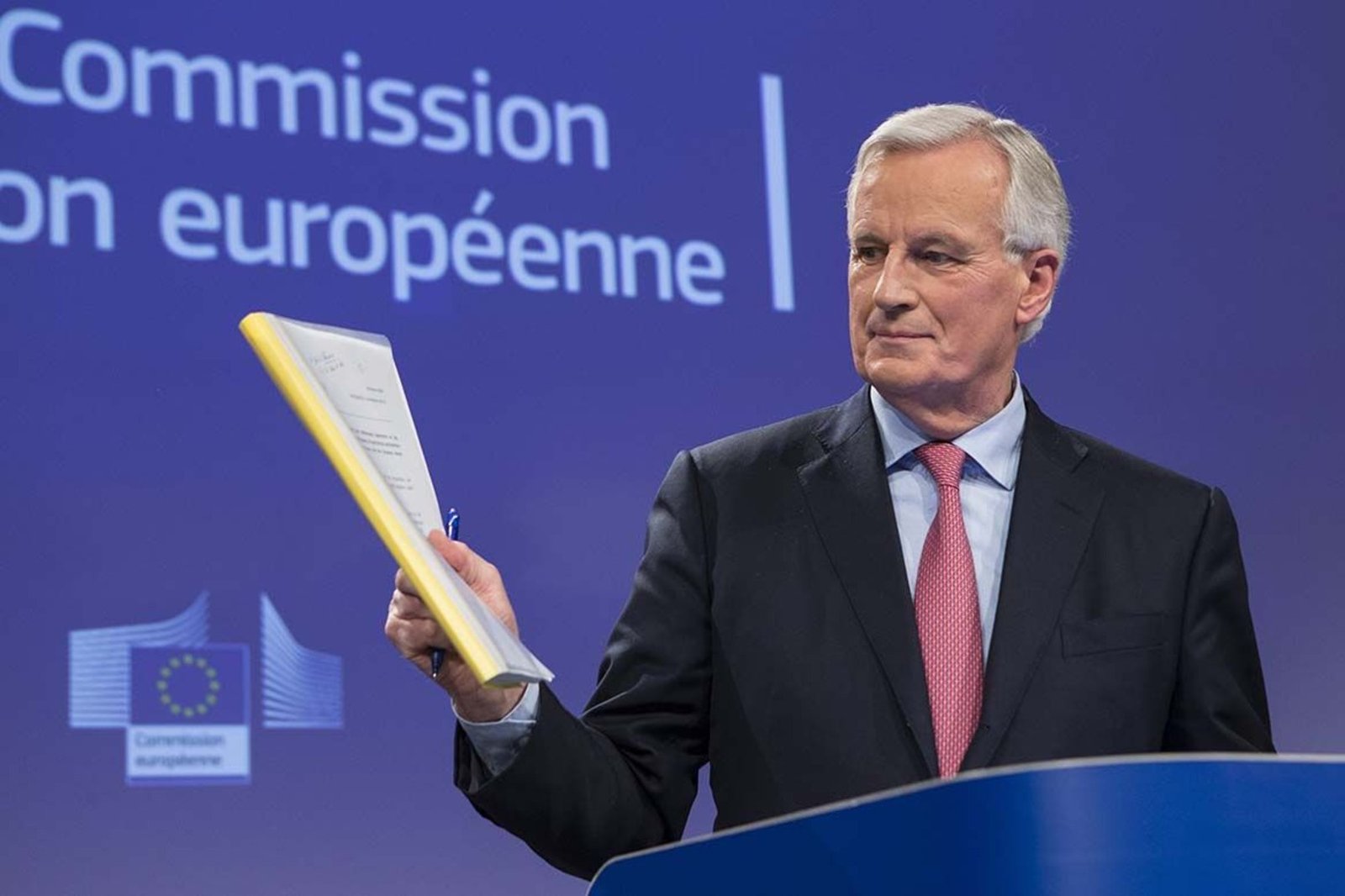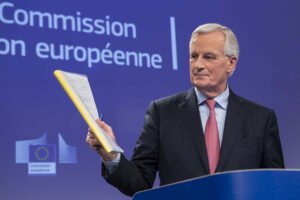
Barnier Bold Change: 5 Key Impacts
On Thursday, French President Emmanuel Macron announced Michel Barnier as the new Prime Minister. This decision marks a significant shift in French politics.
Political Context and Background
The announcement comes after a challenging period for French politics. No single party won an outright majority. This created a situation where forming a stable government was difficult.
Macron’s Ensemble coalition came in second. The far-right National Rally also gained ground. This unexpected outcome forced Macron into a position where careful negotiation was necessary.

The Role of Gabriel Attal
Before this announcement, Macron asked Gabriel Attal to remain as Prime Minister. Attal’s continuation in office was intended to maintain stability. This was crucial as France hosted the 2024 Olympic and Paralympic Games. Millions of visitors arrived in France during this period.
Candidates for Prime Minister
Several names were discussed for the role of Prime Minister. Xavier Bertrand, a prominent conservative, was considered. Former Socialist Prime Minister Bernard Cazeneuve was another candidate.
Each of these figures brought different strengths to the table. Cazeneuve had experience as a former Socialist leader. The decision ultimately fell to Barnier.
Michel Barnier’s Background
Michel Barnier is a seasoned politician. His experience in European negotiations has earned him a reputation for competence and diplomacy. Barnier’s appointment reflects Macron’s intention to bring a steady and experienced leader to the forefront.
Barnier has also served as France’s Minister for Europe and Foreign Affairs.
Implications of the Appointment
Barnier’s appointment is expected to bring several changes. His leadership style and political approach will influence French politics significantly. The focus will likely shift towards stability and experienced governance. His role will be pivotal in steering France through the current political landscape.
The choice of Barnier may also affect France’s relationship with the EU. His past role in Brexit negotiations indicates a strong understanding of European affairs. This could impact how France approaches future negotiations and collaborations with other EU countries.
Public and Political Reactions
The announcement has sparked a variety of reactions. Some view Barnier’s appointment as a positive step towards stability. Others are cautious, given the political deadlock that preceded this decision.
Barnier’s previous roles have earned him respect among many politicians. However, his appointment may face scrutiny from those who preferred different candidates. The public’s response will be closely watched as the new Prime Minister begins his role.
Challenges Ahead
Barnier will face several challenges as he takes office. The political deadlock that led to his appointment remains a significant issue. Macron’s coalition will need to work closely with Barnier to ensure effective governance.
Economic issues, ongoing political disputes, and international relations will be high on the agenda. His past experience suggests he is well-equipped to handle these issues.
Looking Forward
As Michel Barnier begins his tenure as Prime Minister, attention will turn to his policies and actions. The next few months will be critical in shaping France’s political landscape.
Barnier’s leadership style and decisions will be closely monitored. His approach to governance and policy-making will play a key role in France’s future. The new Prime Minister’s effectiveness will be judged based on his ability to navigate the current political and economic climate.
As Michel Barnier steps into the role of Prime Minister, the future of France’s political landscape hangs in the balance. His appointment comes at a critical juncture, with the country grappling with political fragmentation and pressing challenges. The effectiveness of Barnier’s leadership will be pivotal in determining the direction France takes in the coming years.
Barnier’s extensive background in European negotiations and diplomacy positions him well to tackle the complex issues facing France. His prior role as the EU’s chief negotiator for Brexit has equipped him with skills in negotiation, problem-solving, and international relations. These abilities will be essential as he navigates the intricacies of domestic politics and addresses France’s role within the European Union.
One of Barnier’s primary tasks will be to address the political deadlock that has plagued France since the snap elections. His ability to build consensus and bridge divides will be tested as he works to form a stable government. The success of his administration will depend on his capacity to manage relations with various political factions and to implement policies that resonate with a diverse electorate.
Economic stability will also be a significant focus for Barnier. France faces various economic challenges, including post-pandemic recovery and managing inflation. His approach to economic policy will be closely scrutinized as he seeks to foster growth and stability.
Additionally, Barnier’s tenure will likely influence France’s relationship with the EU. His prior experience suggests a nuanced understanding of European affairs, which could impact negotiations on key issues such as trade, security, and environmental policies.
His leadership will be evaluated based on his ability to address immediate concerns and set a clear, forward-looking agenda for France.
Conclusion
Emmanuel Macron’s appointment of Michel Barnier as Prime Minister marks a significant moment in French politics. The decision comes after a period of uncertainty and political deadlock. Barnier’s extensive experience in European and international affairs is expected to provide a steady hand during these challenging times.
As France moves forward, the impact of Barnier’s leadership will become clearer. The French public and political community will be keenly observing his tenure.







